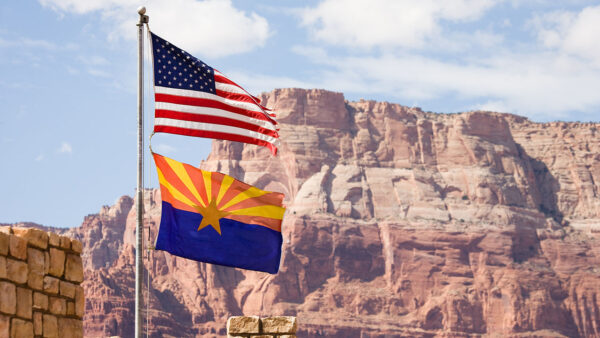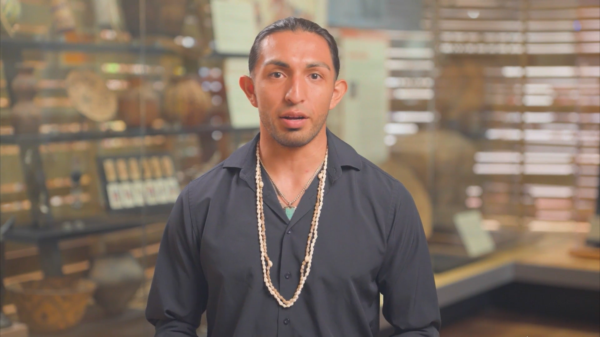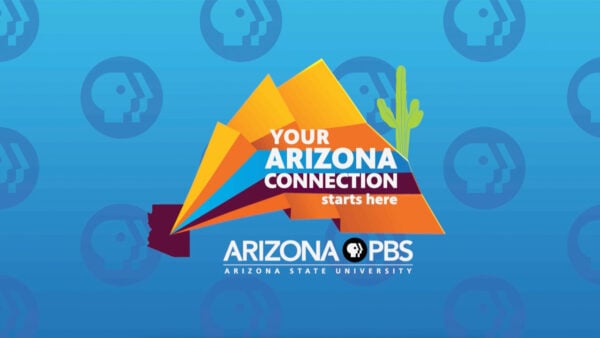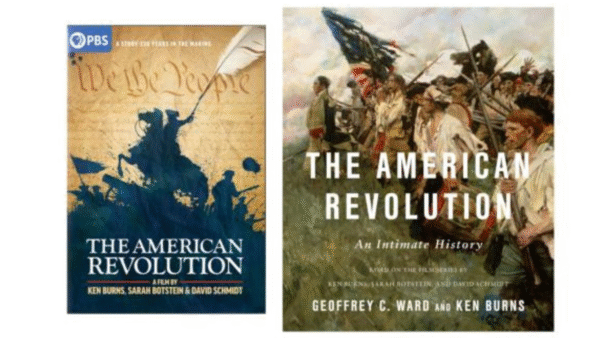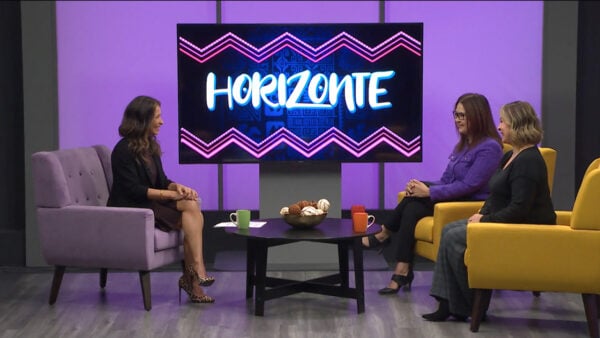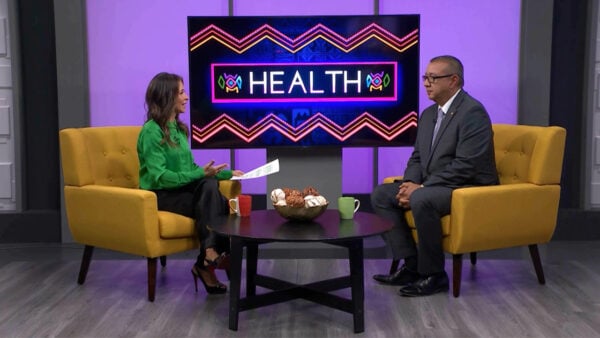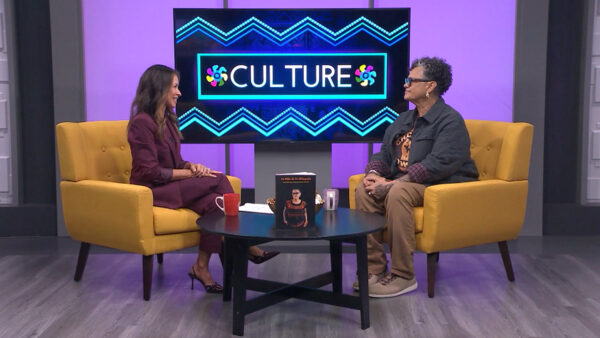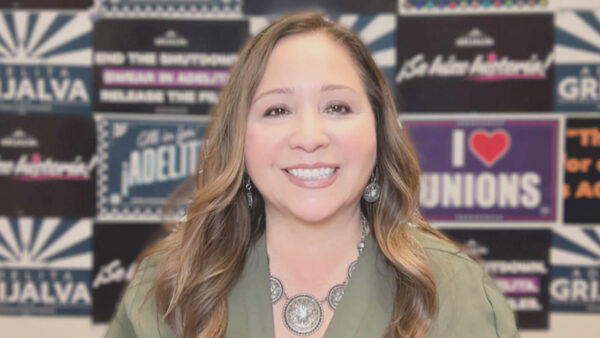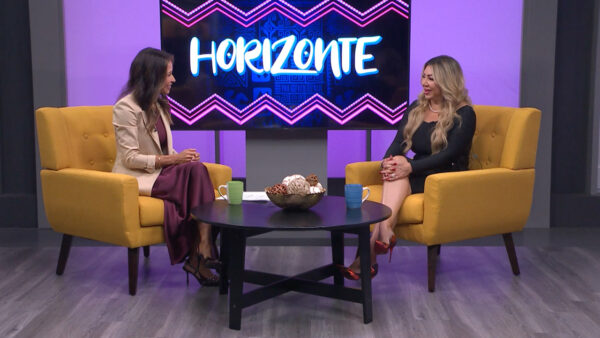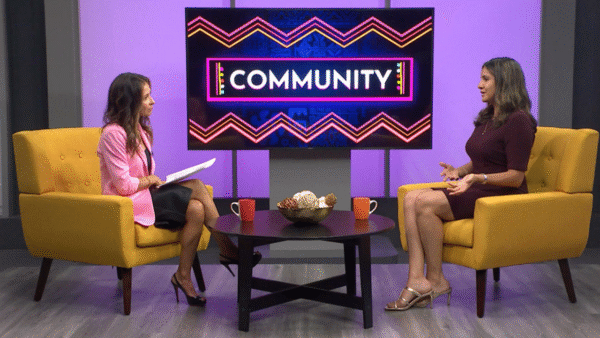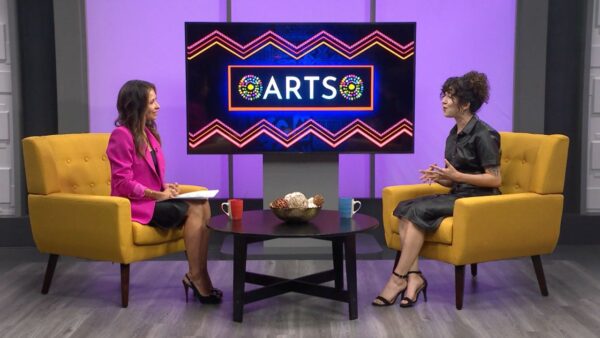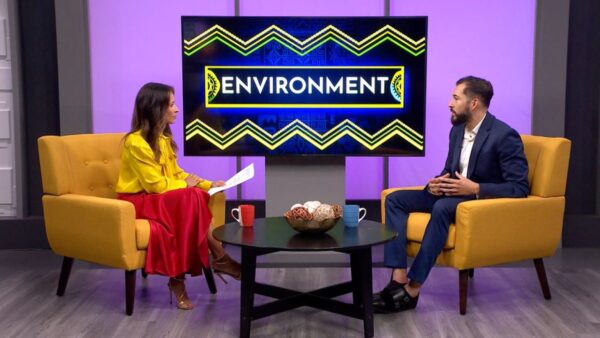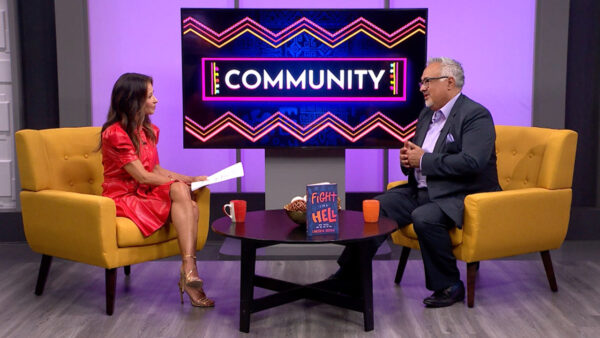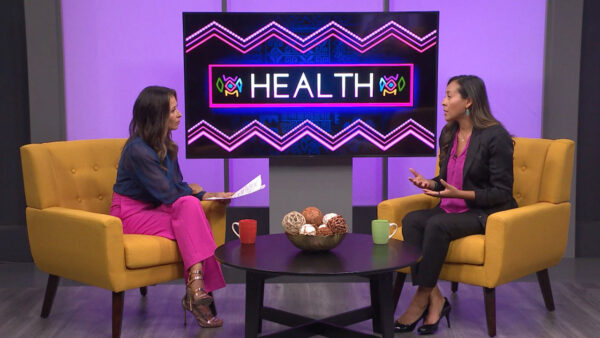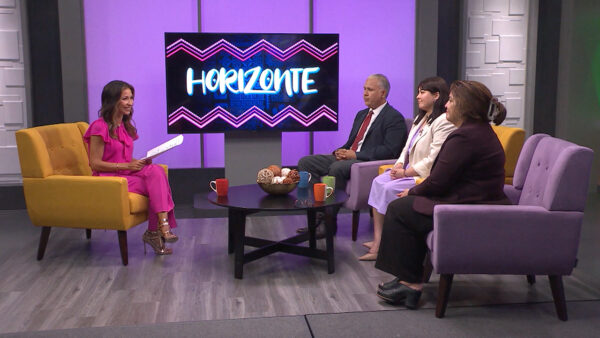A bill has been proposed that would allow a new kind of high interest loan allowing lenders to charge 15 to 17 percent interest without requiring collateral. Rev. Jarrett Maupin, minister with Fellowship Baptist Church and civil rights activist who supports it and Progress Now Arizona Interim Executive Director Josselyn Berry, who opposes the measure will talk about the bill.
Jose Cardenas: Senate Bill 1316 allows payday lenders barred by a voter initiative in 2008 to offer a new high-interest loan. The bill is sponsored by Jon Kavanagh and J.D. Mesnard. Consumer advocates say this legislation gives so-called predatory lenders the green light to come back to Arizona. Joining me is Josselyn Berry, and Jarrett Maupin, a minister and also a civil rights activist. Thank you both for joining us on "Horizonte." A quick update on where the legislation stands.
Josselyn Berry: The bill SB 1316 was passed in Republican caucus yesterday, and will now go through the community of the whole and then for a third read. After that it'll go to the governor's desk.
Jose Cardenas: Just a summary of the specifics of the bill.
Josselyn Berry: It would legalize 200% interest rates on loans. That means if someone takes out a loan for $2500 and it takes them approximately two years to pay it off, that loan could explode to costing $10,000.
Jose Cardenas: The 2500 is the cap in the legislature, right?
Josselyn Berry: Yes.
Jose Cardenas: 17% on a monthly basis.
Josselyn Berry: Yes. That would come out to about $425 a month for interest alone not including hidden fees.
Jose Cardenas: Reverend Maupin, you are supportive of the legislation?
Jarrett Maupin: Yes.
Jose Cardenas: The people spoke eight years ago and said we don't want this type of lending going on in Arizona.
Jarrett Maupin: I think eight years ago people said we don't want payday loans, a loan linked to your paycheck, people's wages garnished. This is a completely different product. People have become poorer statistically; the wealth gap is wider, particularly for African-American and Latino families locked out of traditional lending. I see this as a product extending them a $2500 line of credit that allows them to pay for emergency expenses, direct cremation, a car repair, any number of pressing needs that many poor families have, people that have no credit or they have bad credit. And the answer from credit unions and traditional banks is no, we can't help you.
Jose Cardenas: The concern, though, is that they won't be able to pay it off on a monthly basis and it keeps increasing. They have to keep borrowing money to extend it, pay more fees if they don't pay it off.
Jarrett Maupin: The assumption is that everyone's going run out and take out the max, $2500. I know there are many people who will use $400, $500, $100, within the entire range to pay for things they can't afford. I reject the assumption that fully employed or part-time partly employed people can't be responsible borrowers. I think they have to have a choice. This is a choice; it's a way to help them when they have been turned away by the nonprofits. When the church's budget has been strapped for bereavement or assistance where do they go? This is an option for them. I think many people can and will use it.
Jose Cardenas: So your organization thinks there are other options and they are preferable.
Josselyn Berry: I think there are options when it comes to faith-based groups and credit unions. Those are short-term solutions. We should focus on a long term solution which looks like a living wage for Arizonans. We need to work on people being paid a fair wage for a hard day's work so they don't need loans like this and having to rely on loan sharks that prey on people at their most misfortunate times. I think we need to focus on that.
Jose Cardenas: Does that kind of legislation have any chance of passage in Arizona?
Josselyn Berry: It's definitely difficult in Arizona. But I think there a there is a growing movement to focus on fighting for a living wage. And I think that there are people that are in need of solutions, but I don't think it looks like charging them 200% interest rates that could land them into a further cycle of debt, I don't think that's the solution to creating a healthy economy.
Jose Cardenas: Reverend Maupin, I know you have confidence that people won't overextend themselves. Didn't you just learn from the housing debacle that people will take advantage of what seems to be free money at least initially? Wasn't that part of the problem with people who really shouldn't have borrowed were given loans, and then just got stuck in a house they were living in.
Jarrett Maupin: What was happening is a lot of people of color, low-income inner city people were given these subprime loans. They were red-lined, given second class products. This I see as something quite different from that. You have people -- look: The problem is not the flex loans. It's the incredible power of the banking lobby has over our legislature, including most of the Democrats in the statehouse and state Senate. They will not produce the kind of reform or for state charter banks and credit unions to come up with a product for people traditionally discriminated against. People have to have an option. You have people selling their bodies in various businesses. You have people selling drugs, selling food, car washes door to door in the middle of any ghetto or barrio, you can go straight south down Central Avenue in the middle of Phoenix and you will see people doing desperate things because they can't get a reasonable sized loan. I've been supporting this bill for years in every form that's come up because of a family that came to me. A young lady, her parents both fully employed, she was killed, a small girl, four years old. She's in Greenwood Cemetery right now still without a head stone because they couldn't get a $2,000 loan from a local credit union. We have to change what's going on.
Jose Cardenas: The Reverend talked about the banking lobby and there's been a lot in the papers about the payday loan industry and the contributions they have made to legislators who are supporting this. How significant is that, do you think?
Josselyn Berry: I think it's incredibly significant. I think the only people backing this bill are being paid to back it and support it. Lobbyists from out of state such as Checks for Cash from Ohio I believe is supporting it. The people backing this are only being paid to do it. I don't think they are actually supporting the bill on its merits.
Jose Cardenas: But what about the people who really do need that small amount of money to get them through a difficult time, and they will figure out one way or another to get it paid off, maybe borrowing from relatives to make the repayment.
Josselyn Berry: I think that what we really need to focus on again is the living wage. I think if they take out each just a small amount with a loan like this, it still has interest rates up to 200% with hidden fees.
Jose Cardenas: It's 200% if you don't pay it off for two years.
Josselyn Berry: Yeah. But I think no matter what, even if they take out a small amount it's still going end up costing them a lot more than they originally take out. They will be stuck in the cycle of poverty and I don't think that's fair.
Jose Cardenas: Reverend Maupin, we've managed without these loans for eight years. Has anybody done an analysis to see if conditions are any worse than they were in 2008?
Jarrett Maupin: I don't know of a study that monitors of impact of not having payday loans. This isn't payday lending. Things have gotten worse. You've got most families, their net worth is less than a late-model car. You're talking about whole families worth 5, 6, $7,000. People that are working no, access to traditional lending. There are far worse products out there. There are some people with student loans that have higher interest rates and it's compounded daily. So there are bigger fish to fry. I think the Democrats in the legislature were sincere, that's my party, a lot of them are my friends, I stand with them on issues. They would take on the state chartered banks and force that industry to come up with a product.
Jose Cardenas: We're almost out of time. Why 17% a month? Why can't it be less?
Jarrett Maupin: It's up to the people who are providing these loans to make some sort of a profit off of that, I don't begrudge them that. We see it in the student loan industry, other forms of lending. This bill eliminated people getting on unpaid automobiles.
Jose Cardenas: Thank you for watching "Horizonte," I'm Jose Cardenas, have a good evening.
Video: "Horizonte" is made possible by contributions from the friends of Arizona PBS, members of your PBS station. Thank you.
Rev. Jarrett Maupin: Minister with Fellowship Baptist Church and Civil Rights Activist,
Josselyn Berry: Progress Now Arizona Interim Executive Director
